Resources
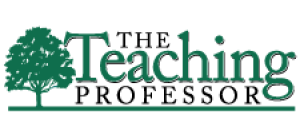
Journal Issue.
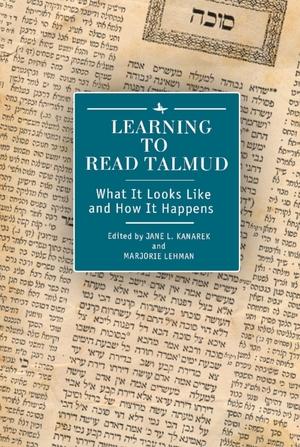
Click Here for Book Review Learning to Read Talmud is the first book-length study of how teachers teach and how students learn to read Talmud. Through a series of studies conducted by scholars of Talmud in classrooms that range from seminaries to secular universities and with students from novice to advanced, this book elucidates a broad range of ideas about what it means to learn to read Talmud and tools for how to achieve that goal. Bridging the study of Talmud and the study of pedagogy, this book is an essential resource for scholars, curriculum writers, and classroom teachers of Talmud. (From the Publisher)

The past thirty years have witnessed tremendous societal and ecclesial changes that continue to inform ministry education in the 21st century. In Seminary Formation, Katarina Schuth, OSF, examines the many aspects of theologate-level schools including their structures and missions, organization and leadership, student enrollment, backgrounds of both seminarians and lay students, and the evolution and development of degree programs, including human and spiritual, intellectual and pastoral formation. Seminary Formation also helpfully includes substantial commentaries on Schuth's research by Ronald Rolheiser, Thomas Walters, Leon M. Hutton, Barbara Reid, and Peter Vaccari. An exploration of the changes in seminaries and schools of theology, with statistical analysis, from 1985 to the present, Seminary Formation anticipates the challenges ahead and considers new directions for the future. (From the Publisher)
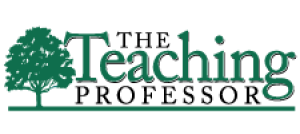
Journal Issue.
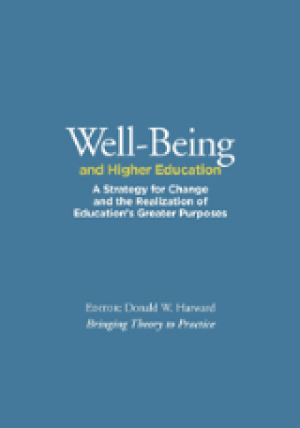
Click Here for Book Review The newest release from Bringing Theory to Practice, Well-Being and Higher Education, explores the multiple connections of well-being to higher education and why those connections matter—for the individual lives of students and those who teach; for the institution; and for whether or not the unique promise of higher education to a democratic society can be advanced and realized. The publication’s thirty-five original essays and provocations—by some of the most highly respected voices within and beyond the academy—address the theoretical underpinnings and practical expressions of these connections. Articles include “Higher Education, the Struggle for Democracy, and the Possibility of Classroom Grace”; “Why Well-Being is Fundamental to Liberal Learning”; “Honoring the Humanity of Our Students”; “Thriving: Expanding the Goal of Higher Education”; and “College Makes Me Feel Dangerous: On Well-Being and Nontraditional Students.” Well-Being and Higher Education opens the discussion on learning’s connection to well-being; responds to current challenges against the state of higher education today; and brings to the forefront a conversation considering the greater purposes of higher education and the need to preserve and revive the institution’s role to look beyond itself to a greater good. (From the Publisher)

Click Here for Book Review The higher education landscape is rapidly evolving due to changes in the student population (millenials, increasing diversity, changing work habits), technology (the rise in the use of social media) and learning spaces (the increase in physical and virtual social learning spaces). Allan presents the first book to bring together recent developments in both theory and practice, covering a wide range of tools and techniques which will suit students in different contexts, from large groups of 500+ to very small classes of research students. Making extensive use of case studies, examples, checklists, and tables, this practical book contains: - an analysis of the current higher education landscape, the changes that are occurring and the diverse nature of student populations; - an exploration of new theories of digital literacy including case studies demonstrating how library and information workers have applied these models in practice; - a demonstration of the many different ways in which academic library and information services are working in support of student employability; - a theoretical overview of different approaches to teaching and learning including Kolb's learning cycle, Laurillard's conversational framework for university teaching, Entwistle's teaching for understanding at university, Land and Meyer's threshold concepts and the Higher Education Academy's work on flexible pedagogies; - practical guidance on designing, developing and evaluating courses and other learning and teaching events in different situations including face-to-face, flipped classroom, blended learning, and online learning; and an exploration of approaches to personal and professional development including 90+ approaches to workplace learning; accredited courses; short courses, conferences and workshops; - networking through professional organizations; and developing online networks. This book will be essential reading for different groups working in colleges and universities including library and information workers, staff developers, educational technologists, educational development project workers, educational change agents and students of library and information science who are planning their careers in higher education institutions. (From the Publisher)
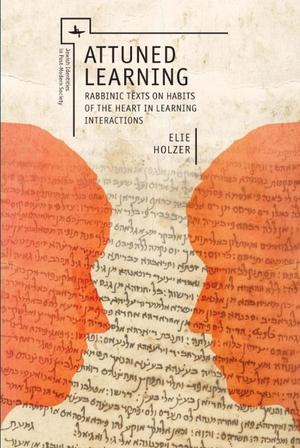
Click Here for Book Review Practice-oriented educational philosopher Elie Holzer invites readers to grow as teachers, students, or co-learners through “attuned learning,” a new paradigm of mindfulness. Groundbreaking interpretations of classical rabbinic texts sharpen attention to our own mental, emotional, and physical workings as well as awareness of others within the complexities of learning interactions. Holzer integrates pedagogical pathways with ethical elements of transformative teaching and learning, the repair of educational disruptions, the role of the human visage, and the dynamics of argumentative and collaborative learning. Literary analyses reveal that deliberate self-cultivation not only leads to ethical and spiritual growth, but also offers a corrective for the pitfalls of the contemporary calculative modalities in educational thinking. The author speaks to the existential, humanizing art of learning and of teaching. This book can serve as a companion volume for A Philosophy of Havruta: Understanding and Teaching the Art of Text Study in Pairs, adding a new dimension of its model of joint learning. (From the Publisher)
Formally known as a “Small Group Instructional Diagnosis” (SGID), specialists from the Illinois State Center for Teaching, Learning and Technology visit a classroom and interview the students in a consensus-building process that enables instructors to gain insights into students' perceptions about the class and their learning.

Journal Issue.
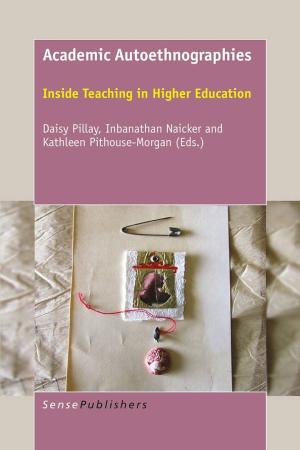
Click Here for Book Review Abstract: Academic Autoethnographies: Inside Teaching in Higher Education invites readers to experience autoethnography as a challenging, complex, and creative research methodology that can produce personally, professionally, and socially useful understandings of teaching and researching in higher education. The peer-reviewed chapters offer innovative and perspicacious explorations of interrelationships between personal autobiographies, lived educational experiences, and wider social and cultural concerns, across diverse disciplines and university contexts. This edited book is distinctive within the existing body of autoethnographic scholarship in that the original research presented has been done in relation to predominantly South African university settings. This research is complemented by contributions from Canadian and Swedish scholars. The sociocultural, educational, and methodological insights communicated in this book will be valuable for specialists in the field of higher education and to those in other academic domains who are interested in self-reflexive, transformative, and creative research methodologies and methods. (From the Publisher)
Wabash Center Staff Contact
Sarah Farmer, Ph.D
Associate Director
Wabash Center
farmers@wabash.edu